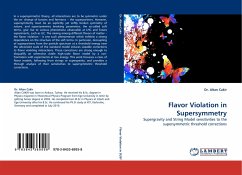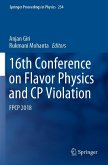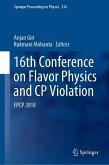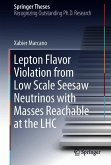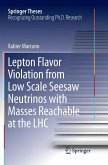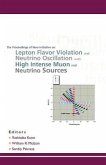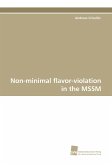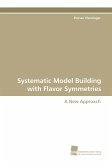In a supersymmetric theory, all interactions are to be symmetric under the ex- change of bosons and fermions the superpartners. However, supersymmetry must be an explicitly yet softly broken symmetry of nature, and supersymmetry breaking parameters, the so-called soft terms, give rise to various phenomena observable at LHC and future experiments, such as ILC. The mixing among different flavors of matter the flavor violation is one such phenomenon which exhibits a strong dependence on the structure of the soft terms. In particular, decoupling of superpartners from the particle spectrum at a threshold energy near the ultraviolet scale of the standard model induces sizeable corrections to flavor violating interactions. These corrections are strong enough to disqualify an otherwise viable high-scale flavor model by a con- frontation with experiments at low energy. This work focusses a class of flavor models, following from strings or supergravity, and provides a through analysis of their sensitivities to supersymmetric threshold corrections.
Bitte wählen Sie Ihr Anliegen aus.
Rechnungen
Retourenschein anfordern
Bestellstatus
Storno

